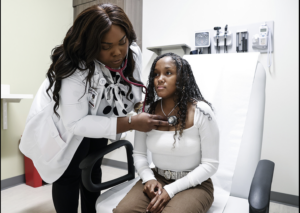
Intern Blog Post: Personal Perception Changes in Mental Health
August 9, 2013
While interning with the Carter Center’s Mental Health Program, we have been exposed to various news outlets’ stories about mental health. As our summer internships draw to a close, we hope to share some of our own insights about mental health journalism. Following the Newtown, Connecticut shooting this past December, the gunman Adam Lanza was quickly labeled a “madman,” a “psycho,” and “disturbed.” The mass media’s ability to impact public perception about mental health renders media as one of the most important influences in today’s society, which is why there is an obligation to not sensationalize information. There is a propensity within the media to report on the negative qualities associated with mental illness, such as unpredictability and unsociability. The public greatly fear violence that is random, senseless, and unpredictable and they associate this with mental illness, despite prominent studies repeatedly reporting that individuals with mental illness are far more likely to be victims of violence than act as perpetrators. Historically, less reporting is devoted to espousing the benefits of treatment or to reducing stigma.
Bombarded constantly with headlines labeling people “mad” or “insane,” the public lexicon has become infiltrated with a multitude of potentially-harmful phrases with regard to mental health. Not only does the weather outside too often become “bipolar,” but concerts and parties are frequently “crazy” and many people refer to that “schizophrenic” neighbor causing trouble. Allowing these stigmatizing epithets to inhabit daily language discriminates against the estimated 25 percent of American adults who do suffer from diagnosable mental disorders. These blatant instances of othering peppered into our speech invalidate not only hypothetical book and television characters, but also the very people with whom we might be conversing—our friends, family, and coworkers. Mental illness is far more prominent than many people realize, and yet these common slurs make the sometimes extreme suffering caused by mental illness appear comical, frightening, or distant.
Even as we work in an environment surrounded by anti-stigma activists, we find ourselves thoughtlessly perpetuating some of these very affronts. Our department has created a “jar,” reminiscent of swear jars in elementary school classrooms, to aid in curtailing this offensive language. This has personally helped us immensely in actually becoming mindful of the wordings we choose, and to spread these learnings to our friends and family. However, you as journalists have a much broader reach than us interns, and so we urge you to be cognizant of how that influence is utilized.
During our Carter Center internships, we have observed and researched the handling of facts by the media. As avid consumers of the news, we actively seek out the most accurate, non-biased reporting. In today’s polarized environment, we often have difficulty finding stories we feel are truly unbiased. The idealists within us believe journalists and editors have a responsibility to report each story fairly. We envision diligent reporters exhausting themselves to pursue the truth. We spend hours browsing through news sources hoping to educate ourselves on current events. We take the information we read with a grain of salt. However, most of the general public will take each story at face value, trusting the reporter to not misconstrue or dramatize information.
As Rosalynn Carter Fellows for Mental Health Journalism, you are charged with the arduous task of increasing accurate reporting on mental health issues and reducing stigmatizing information. We hope that the new AP Stylebook on mental illness and other resources we offer on mentalhealthjournalism.org will provide guidance, but there is much to be done in improving the state of mental health reporting. With the power of your pen or camera, you have the capacity to enlighten people and reduce discrimination. We are optimistic and hopeful that your contributions can aid in this struggle for fair and destigmatizing reporting.
Good luck and a sincere thank you for what you are doing.
Your Carter Center Mental Health Program Interns Summer 2013,
-Haley Bossert, Joe Boltri, and Tommy Laux



